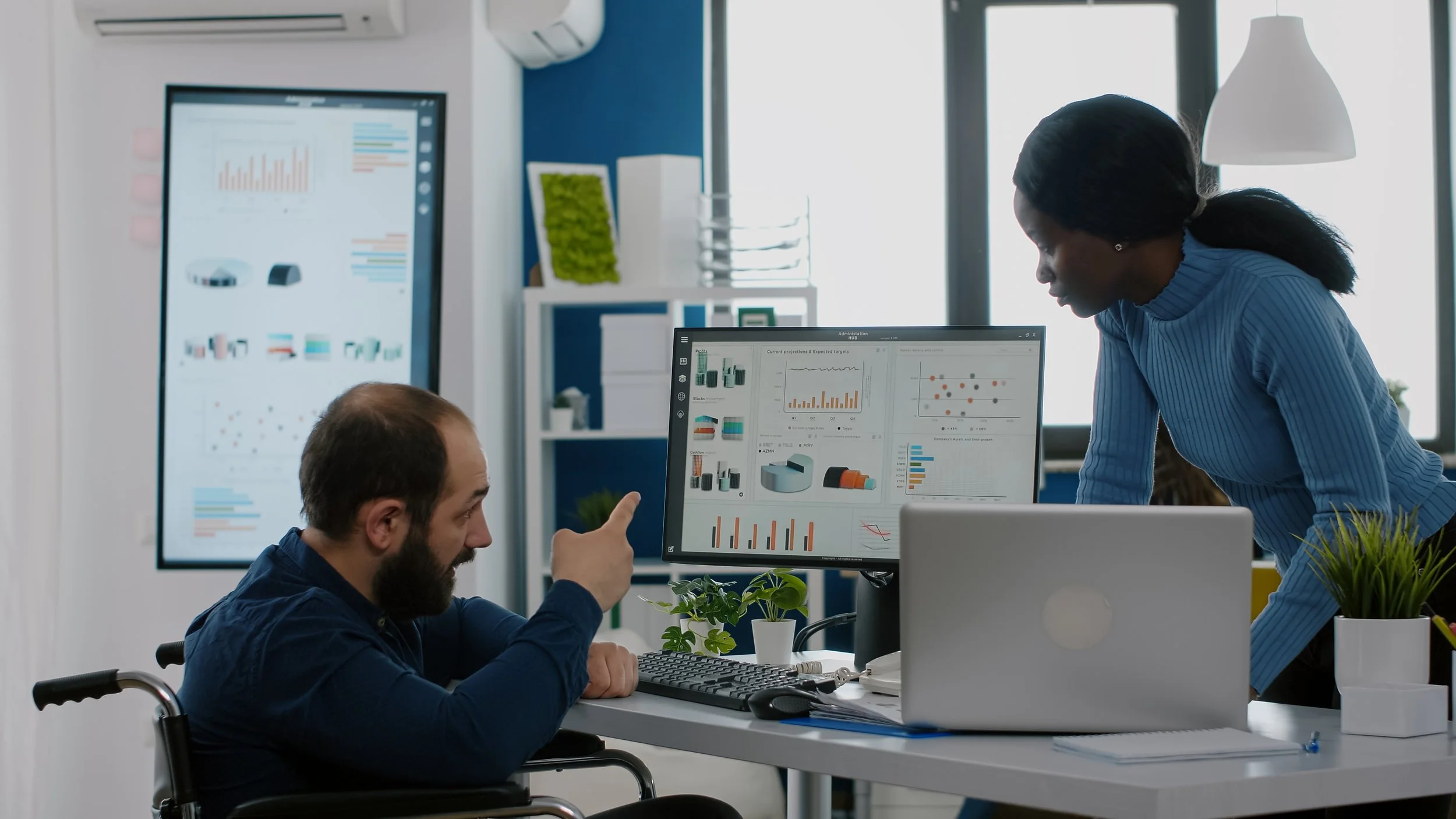Navigating Accessibility and Inclusivity for All Workers
Generation Z’s commitment to inclusivity provides a huge opportunity for organizations to address the needs of all employees, including disabled workers. Catarina Rivera, MSEd, MPH, CPACC, a disability public speaker and DEIB consultant at Blindish Latina, shares insights about expanding DEIB policies, remote work opportunities, and suggestions for managers of disabled employees.
First, Rivera emphasizes the importance of recognizing disability as a fundamental facet of DEIB. According to the Bureau of Labor Statistics, only 20% of people with disabilities are employed (Reilly), and fewer than 5% of U.S. employees voluntarily reported that they have a disability (Dhue & Epperson).
Rivera maintains that focusing on building a universally inclusive environment is far more impactful than trying to increase disclosure rates. According to the CDC, “27 percent of U.S. adults have some disability.” The first step is to acknowledge the prevalence of disabilities—ranging from physical, mental, and neurodivergent—in today’s workforce. Recognizing these disabilities can improve inclusion across your processes, programs, and environments.
Moreover, Rivera advises managers to engage in open dialogue and address microaggressions affecting Gen Z and all workers. Listening and learning about their needs and challenges will improve your understanding and their work experience. Champion a learning-centered approach so your organization builds a culture where disabled employees feel valued, respected, and understood. Rivera also highlights the positive impact of remote and hybrid work environments on disabled employees. This flexibility is critical for enabling disabled individuals to contribute their talents without the constraints of traditional office spaces. As proof, she points out the disability employment rate increased during the pandemic due to the availability of remote work.
The Real Truth about Disabilities
Rivera shares a few essential truths about employees with disabilities that every manager should know:
Unique Talents and Insights: Disabled individuals possess unique insights and talents that enrich teams and organizations.
Reframing Disability: Disabled individuals don’t necessarily view their disabilities as inherently negative. Managers should be mindful of their language and adopt an approach aligned with Disability Pride.
Navigating Inaccessibility: Disabled employees work diligently to adapt to inaccessibility on top of their job responsibilities. Managers can support these individuals by alleviating this burden and fostering an environment of inclusivity.
Creating Accessible and Inclusive Spaces
Rivera defines accessibility as ensuring equitable participation and shared information. Practical accessibility practices include providing screen reader and keyboard navigation compatibility for websites, providing closed captions and ASL interpreters, using readable fonts, and employing open communication without assumptions.
“Many managers don’t know what to say when someone discloses a disability to them,” she says. “They don’t know what the reasonable accommodations process is or how to support it. And many employees are using offensive language without realizing it. These are foundational places to start.”
In closing, Rivera urges managers to embrace Disability Pride and amplify the voices of multiply marginalized disabled individuals. By elevating these voices and engaging in open dialogue, organizations can create an inclusive environment that empowers every member of the workforce.

